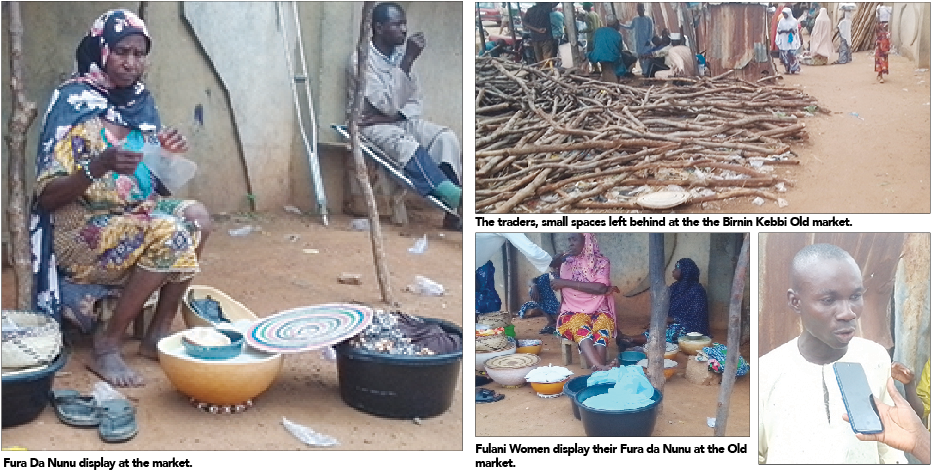- Complain of distance, poor patronage
From Olanrewaju Lawal, Birnin Kebbi
Years ago, petty traders at the Old Birnin-Kebbi Market, Kebbi State, were relocated to the New Central Market, Sani Abacha Bye-Pass. It was assumed by at the new market was bigger, better, modern and would translate to a bigger volume of businesses and improved efficiency.
However, it now seems that these expectations were misplaced. Investigation by Daily Sun shows that many of the petty traders, who were asked to quit either did not quit or went there briefly and rushed back to the old market.
It is not in doubt that the old market has its own unyielding attractions. Situated at the heart of the state capital, it has a history of commercial activities, attracting the urban rich, the middle class and the rural folks. The old market is an old hub of sort for members of the various rural communities around Kebbi. These petty traders, mostly Fulani from different rugas and communities, sell goods such as local rice (shinkafa), fura da nunu, animals and farm produce among others.
When Daily Sun visited the old market, it was full of life and flourishing with business activities. According to the traders themselves, they were at home with the environment and ambiance of the old market and would not be in a rush to replace it for any other market- even if they had to be forced to relocate.
Their excuses for preferring the old market varied from profit, convenience and history. Hauwau Yah-Goru, a Fulani cow milk vendor said she was one of the earliest cow milk vendors at the old market. She has been there even before the new central market was built:
“The reason I cannot move to the new central market is that I am an old woman leader of this place, which is now being occupied and shared with other Fulani vendors from different rugas.
“If I should leave this place for the new one that they are offering to us, it means that my business will die naturally. A lot of my colleagues here will lose their means of livelihood.
“Apart from this, I cannot afford to lose my customers of over 50 years. Most of these customers are used to me here. I know them and they know me. They can easily locate me here. We have all come a long way together.
“I cannot also afford to rent a shop at the new market. With the relocation to the new market, we are supposed to rent new shops even when the shops are very exorbitant for petty traders like ours.”
Eighteen-year-old Suwaiba Usman inherited her rice business from her mother: “By the time I pay transport fare to and from the new central market, there won’t be any gain left for me in the business at the end of the day. And that will be disastrous for me!
“And do not forget that most of my customers are low income earners, who do buy just a small ‘mudu’ (cup) of rice daily. These customers are living around the old market, because they can’t afford the transport fare to the new central market.
“Instead of going far to buy, they prefer to patronise me that is nearby. That is my experience in the past five years since I started this small business.”
Aisha Atiku, is a 23-year-old local rice seller from Gangaren Takalau village, has been at the old market for a decade. She began selling local rice selling at a very tender age with her mother. She attributed her failure to move to the new market to her low working capital.
She also disliked the idea of the new market environment because it is always over-crowded and “partially unsecured for women. I stand the risk of losing my regular customers as majority of them are poor.”
Faruku Umaru Sahabi is the Village Head (Hakimi) of the community where the old market is situated: “It is not possible for all the traders to move to the new central market at the same time. Most of them, who stay behind are poor, with very little capital.
“There is need to encourage and support a market that will cater for the needs of their poor customers. Therefore, these traders cannot afford to move to the central market or to compete with the big dealers and traders who have huge capital and money to do their businesses.
“This place is familiar to many of our people. Those who couldn’t afford transport fare to the new market could easily trek here to purchase whatever they need.
“For all the years they have spent at the old market, they have not benefitted from any form of support, grant or soft loans from the state government. I am appealing to the state government to come to the aid of our people so that they can boost their trade.”


















Leave a comment